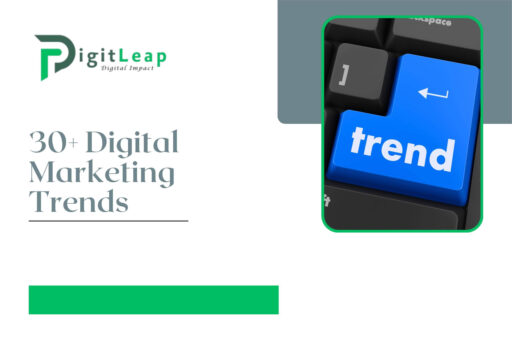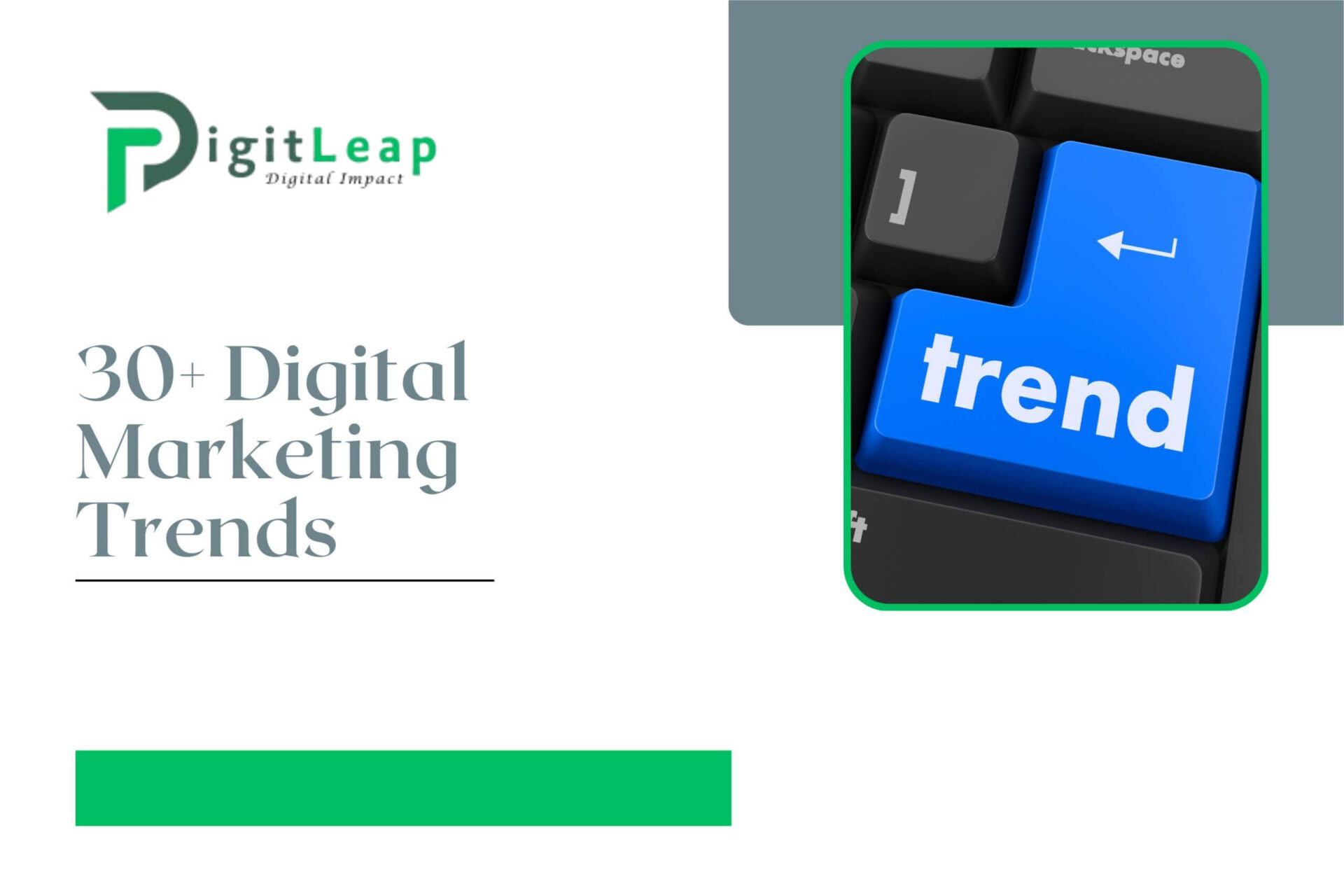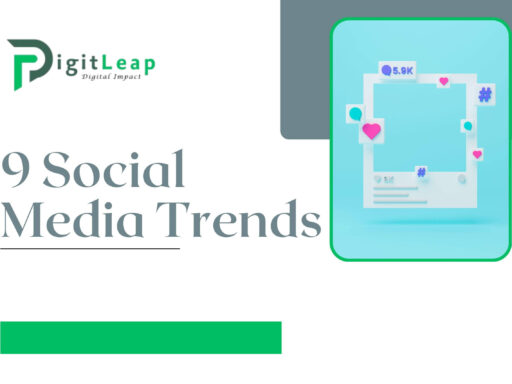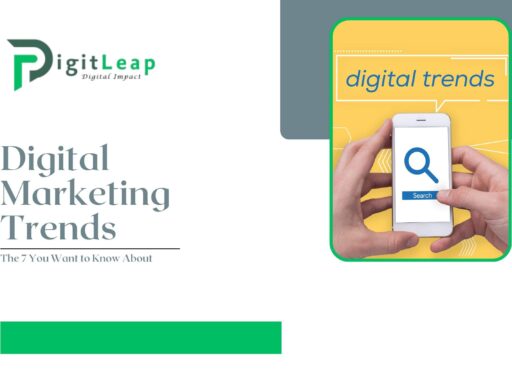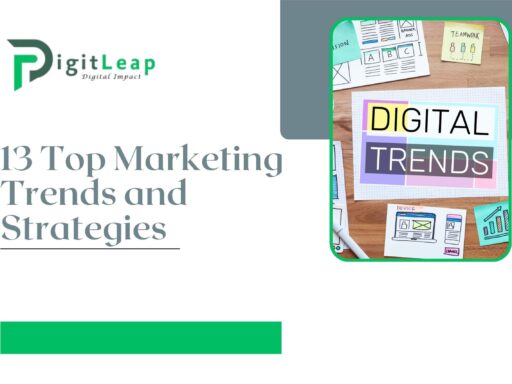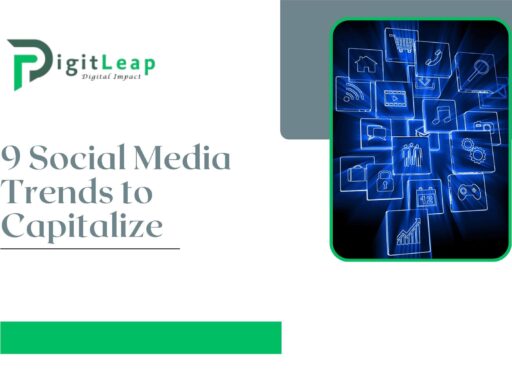30+ Digital Marketing Trends for 2025
The digital marketing landscape is transforming at an unprecedented pace, with trends for 2025 highlighting a shift toward hyper-personalization, immersive experiences, and greater attention to ethical practices. For businesses aiming to stay competitive and relevant, adapting to these changes is crucial. Here are over 30 digital marketing trends for 2025 that will keep you ahead in an ever-evolving digital world.
1. Hyper-Personalization
In 2025, personalization goes beyond addressing users by name. With data-driven insights and artificial intelligence (AI), brands can deliver hyper-personalized experiences tailored to each individual’s preferences, purchase history, and behaviors. This level of customization helps brands forge stronger connections and increase customer loyalty.
2. AI-Powered Content Creation
AI is becoming a valuable tool in content creation. From generating blog posts to crafting social media captions, AI can assist in creating engaging, tailored content. While human oversight is still essential, AI-powered tools allow for faster, more data-driven content production that resonates with target audiences.
3. Short-Form Video Dominance
The popularity of short-form videos continues to soar, with platforms like TikTok, Instagram Reels, and YouTube Shorts leading the charge. Quick, captivating videos are ideal for grabbing attention, making them perfect for brands looking to share their stories in a fast, engaging way.
4. Rise of Augmented Reality (AR) Shopping
AR is transforming online shopping by allowing customers to visualize products in real-world settings. Brands can leverage AR for virtual try-ons, home decor visualizations, and more, providing an interactive experience that builds customer confidence in their purchases.
5. Voice Search Optimization
With voice-activated devices like Alexa and Google Home on the rise, optimizing content for voice search is crucial. Brands need to incorporate conversational, question-based keywords to cater to voice queries, capturing an audience that prefers hands-free, quick answers.
6. Increased Focus on Sustainability and Ethics
Today’s consumers are increasingly drawn to brands that reflect their values. In 2025, marketing with a focus on sustainability and ethical practices will be essential for building trust and loyalty. Brands that transparently showcase their efforts in these areas will gain favor with ethically-minded customers.
7. Interactive Content
Interactive content—such as quizzes, polls, and calculators—encourages users to engage actively rather than passively consume information. This format boosts engagement and can provide valuable insights into customer preferences and behaviors.
8. Social Commerce Growth
Social media platforms have evolved into powerful shopping hubs. Social commerce allows users to discover and purchase products directly within apps like Instagram and TikTok, creating a seamless experience that combines social interaction and shopping.
9. Influencer Partnerships with a Focus on Authenticity
Influencer marketing is shifting towards authenticity. Brands in 2025 are forming long-term partnerships with influencers who genuinely align with their values, focusing on micro- and nano-influencers with dedicated, engaged audiences.
10. Chatbots for Enhanced Customer Support
AI-driven chatbots are becoming more sophisticated, offering real-time customer support that enhances user experience. By providing 24/7 assistance, chatbots help resolve issues quickly and maintain customer satisfaction.
11. Emphasis on Data Privacy
With heightened awareness around data privacy, customers want to know how their data is used. Transparent, privacy-first marketing will be key in 2025, as brands emphasize data security and consent, building trust with their audiences.
12. Real-Time Analytics
Brands are leveraging real-time analytics to make agile, data-driven decisions. By tracking and responding to user behavior immediately, marketers can optimize campaigns on the go and improve outcomes.
13. Content That Educates and Adds Value
Consumers are increasingly drawn to content that informs and empowers. Educational blogs, tutorials, and guides position brands as trusted sources, fostering loyalty by helping customers make informed decisions.
14. Email Marketing Personalization
Email marketing remains powerful, but in 2025, personalization will be more essential than ever. AI-driven segmentation allows brands to deliver targeted messages based on user behaviors, preferences, and purchase history, driving higher engagement rates.
15. Enhanced Mobile Experiences
With the majority of users accessing content via mobile, optimizing for mobile-friendly experiences is crucial. Fast-loading, visually appealing, and easy-to-navigate mobile sites will be a key factor in digital marketing success.
16. AI-Enhanced Ad Targeting
AI enables brands to target ads with unparalleled precision. By analyzing user behaviors and preferences, AI helps deliver ads that are more relevant to each user, increasing conversion rates and maximizing ad spend efficiency.
17. Omnichannel Marketing Integration
Customers expect seamless transitions between online and offline channels. Omnichannel marketing ensures a consistent brand experience, whether customers engage on social media, email, or in-store.
18. User-Generated Content (UGC)
UGC, such as customer reviews and photos, adds authenticity and builds trust. Brands are increasingly incorporating UGC into their marketing to provide social proof and encourage others to share their positive experiences.
19. Predictive Analytics
Predictive analytics uses historical data to forecast future trends. By anticipating customer needs and behaviors, brands can proactively tailor marketing efforts to stay relevant and effective.
20. Virtual Events and Webinars
Virtual events are here to stay. Webinars and online conferences allow brands to connect with global audiences, share expertise, and establish themselves as industry leaders without the geographical constraints of in-person events.
21. Employee Advocacy on Social Media
Employee advocacy programs encourage team members to share content and act as brand ambassadors. This approach boosts brand visibility, fosters trust, and provides an authentic perspective on the company’s culture and values.
22. Customer Experience (CX) Focus
Brands that prioritize customer experience foster loyalty and advocacy. Whether through intuitive website designs, easy navigation, or responsive support, improving CX will be essential for maintaining a competitive edge.
23. Gamification for Increased Engagement
Gamification—such as adding rewards, challenges, or interactive features—encourages user participation. This trend boosts engagement and makes interactions with the brand more enjoyable.
24. Expansion of Social Listening
Social listening tools track online conversations about brands, products, and industry trends. This allows companies to respond to customer feedback, stay ahead of trends, and understand public sentiment.
25. Personalization in Video Marketing
Video marketing is even more effective with personalization. Brands can use data to create targeted video content that addresses specific customer needs, increasing engagement and connection.
26. SEO for Visual Search
Visual search enables users to search using images rather than keywords. Brands optimizing for visual search increase their visibility, especially in industries like fashion, home decor, and travel.
27. Customer Loyalty Programs
Customer loyalty programs keep audiences engaged and encourage repeat purchases. Personalized rewards and exclusive offers help brands retain customers and strengthen long-term relationships.
28. Integration of Blockchain for Transparency
Blockchain technology adds a layer of transparency in tracking data, particularly in industries like supply chain and finance. In marketing, it can foster trust by allowing customers to see how their data is handled.
29. Micro-Moments Marketing
Micro-moments happen when consumers turn to their devices for quick answers. Brands that anticipate these moments with timely, relevant content can capture attention and drive conversions.
30. Social Media Communities
Social media is becoming more community-focused. Brands are creating groups on platforms like Facebook and Reddit, where they can engage directly with loyal followers and foster a sense of belonging.
31. Expanding Accessibility in Digital Content
Accessibility in digital content, such as using alt text, captions, and easy navigation, ensures inclusivity. Brands that prioritize accessibility appeal to broader audiences and show social responsibility.
32. Long-Term Influencer Partnerships
Influencer marketing is shifting towards long-term collaborations. Brands are forming meaningful relationships with influencers who authentically connect with their audiences, creating more genuine partnerships.
33. Sustainable Packaging and Eco-Friendly Practices
As consumers become more eco-conscious, sustainable packaging is expected. Brands that embrace green practices, from reducing plastic to using recycled materials, stand out and resonate with socially aware consumers.
Conclusion
Digital marketing in 2025 is all about delivering personalized, ethical, and interactive experiences. From AI-driven personalization to sustainability and gamification, these trends are reshaping how brands connect with audiences.
At Digit Leap, we’re here to help brands navigate these transformative trends with innovative, customer-focused strategies. By staying ahead of the curve, we empower businesses to build stronger connections, grow sustainably, and succeed in an increasingly digital world.

